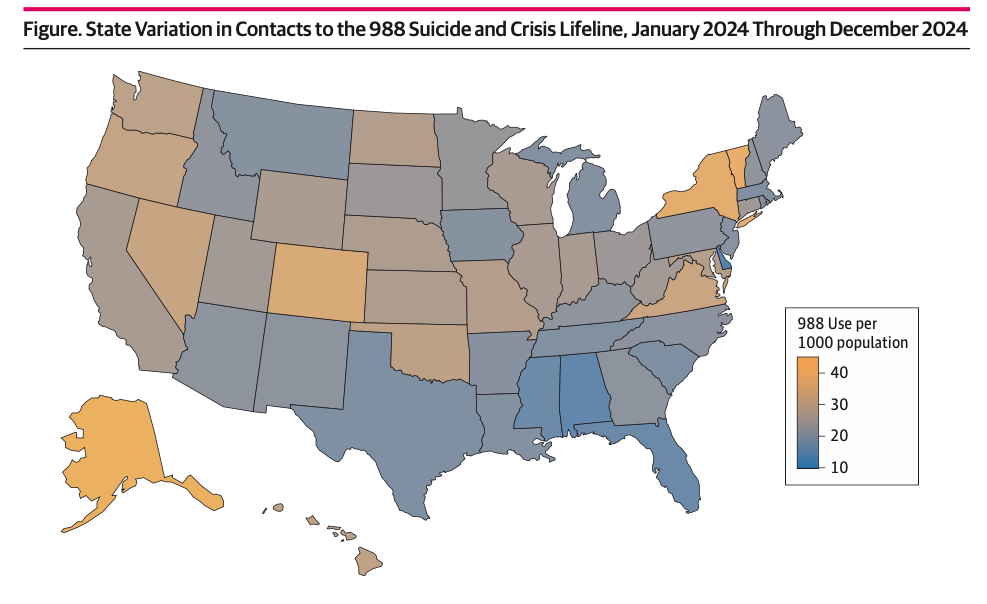mental health
How many people are calling 988?

JAMA Network Open
It's been almost three years since the launch of 988, the easier-to-remember number for the national crisis and suicide hotline. Between July 2022 and December 2024, there were about 16 million calls, texts, and chats to the line. That's almost 49 calls for every 1,000 people in the U.S., according to a study published yesterday in JAMA Network Open. But use of the line varies greatly by state, researchers also found. The map above shows the range. In the past year, about 45 per 1,000 people in Alaska have contacted 988, as opposed to just 12.5 per 1,000 in Delaware.
The overall volume of calls to the hotline have increased over time — but crisis services that 988 counselors might connect callers to have faltered. The 988 contact rate for the past year (23.7 per 1,000 people) is less than half of the rate of adult emergency department visits that include a mental health diagnosis. To the study authors, that indicates that even more people could be utilizing the hotline.
global health
A different kind of global fertility crisis
All over the world, birth rates are declining. It's often framed as a crisis, and political leaders have all sorts of ideas to solve it — in the last six weeks, both $5,000 "baby bonuses" and $1,000 "Trump accounts" have been floated here in the U.S. But according to a report published today by the United Nations Population Fund, the real crisis has nothing to do with declining rates. Rather, it's that high proportions of people globally "are unable to realize their fertility aspirations." Essentially, some people are having more children than they want, and others are having fewer.
For the report, researchers conducted an online survey of more than 14,000 people from 14 countries. Eighteen percent of reproductive-age adults anticipated they'd be unable to have the number of kids they desired. Among people over 50, 31% said they did end up having fewer children than they ideally would have chosen, while 12% said they had more.
It's a complex problem — almost 13% of all respondents to the survey said they had experienced both an unintended pregnancy and a time when they wanted to have a kid, but felt unable to. "What emerges is a concerning picture of obstacles to reproductive agency in every country investigated," the report says.


No comments